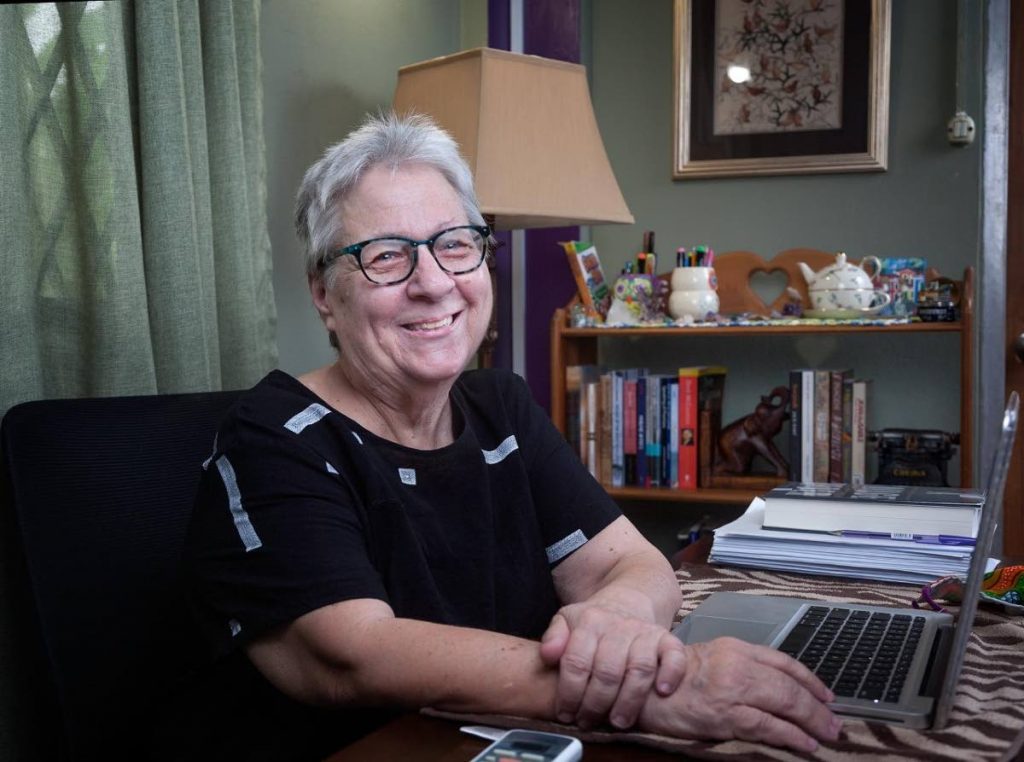A King in his own right

WELCOME TO Carnival 2021, silenced in many ways by covid19, but it’s a good day to reflect on the past. Today, I remember Carnival 1988, when Johnny King’s soca Wet Me Down ruled the road. It didn’t become Road March because it wasn’t the song played most as bands crossed the judging points, but Wet Me Down was the song most played on the streets that Carnival.
“It should have been Road March because it rained that day,” David Rudder and other calypsonians told me on Ash Wednesday that year. But Johnny King doesn’t remember any rain that Carnival.
“People threw oranges, water, whisky and beer when the song played. It didn’t rain, but for some reason everyone thinks it did,” laughs King. “That was a great year. I think that was my biggest year.”
Most people feel King arrived on the calypso scene four years earlier in 1984, but he had been singing since 1980 when Ash Wednesday Carnival and Where is the Love made a big splash. In 1981, King, an officer in the Mounted and Canine Branch, got summoned to late police commissioner Randolph Burroughs' office.
“I didn’t have permission to sing as a police officer,” he says. “Mr Burroughs asked me if I intended to sing in a calypso tent.”
Burroughs sanctioned the move from King singing with the police band to singing in the calypso tent. King felt proud to represent the police.
“I always did a party song and something sensical, a social commentary or something philosophical. The only political commentary I ever did was Warmongers,” says King.
In 1984, King reached the Savannah stage with Nature’s Plan and Foul Play. “Destruction of the weak is nature’s plan,” he sang in that social commentary. Foul Play – like all of his second songs – was an upbeat, danceable party song. King couldn’t beat Penguin’s prescient social commentary Living in Jail, which heralded the establishment of burglar-proof homes and Sorf Man, a satire on masculinity. King placed second.
In 1985, King returned to the Savannah with Appreciation, a feel-good, morale-boosting social commentary and Ah Want it All the Time, a party song recognisable from its first cord. Partygoers young and old still request the soca. It evokes a collective cheer from the first cord.
On his third trip to the National Calypso Monarch finals in the Savannah with Pan Man’s Over Dat and Try, King placed seventh.
But King never slid into oblivion. He had his loyal followers.
“Carnival has been good to me,” he says.
In 1969, King retired from the police service and the Mounted and Canine Branch as a sergeant. He devoted himself to music.
“Shadow inspired me with his style of writing and his rhythm. He was one of a kind. No one could write or sing like him. His music was kind of weird, but it had some sense in it and he was very deep,” says King. “You were bound to dance when you heard him.”
King, who has always lived in Valencia, says he loved Scrunter for his country vibe.
“Sparrow was the master. When I was growing up, sometimes one man in the village had a small radio and Carnival Sunday night we would listen to Sparrow. For me, Kitchener was probably the best kaiso composer, musically – not rhythm wise – but his melodies were king. I used to go to Kitchener’s house and purchase records directly from him. That was an honour for me,” says King. “Merchant was a good composer too.”
King says his first love was pan. He never visualised himself as a calypsonian. “I didn’t even think I could sing.”
In 2005, King competed in the Groovy Soca category of the Soca Monarch competition; then gave up competing.
“After a time, I found the competition was all about singing political calypsoes. It was which political party you were aligned to. People started to find the competition boring. I think that is one of the reasons why calypso tents fell apart. The songs weren’t so good again because they weren’t balanced songs. Now songs aren’t about what is happening in the country. They’re about the UNC and the PNM,” says King.
He harbours no sadness or bitterness over never being crowned a calypso monarch, and he doesn’t mind Carnival being on pause this year either.
“We have to be safe. Covid is making people a little more creative. I’m writing more now, and I perform all the time. God has blessed me,” says King.
This Carnival, King and other calypsonians explore new avenues to perform virtually. No matter what, you can’t kill Carnival.


Comments
"A King in his own right"